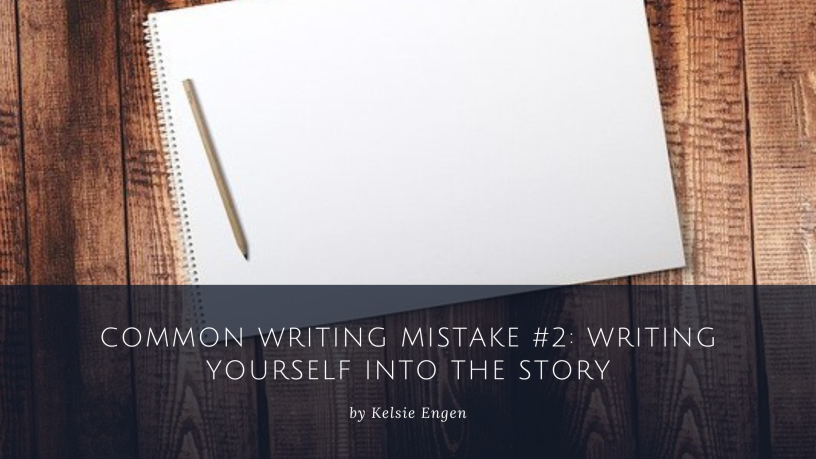Believe it or not, this happens a lot to new writers. When they’re trying to come up with a character to carry their book’s plot, they unwittingly (or purposefully) insert themselves into the main protagonist spot.
Why would you do such a thing? Well…it’s easy, really. Instead of having to create a character from scratch, you follow that old writing advice of “write what you know.” And what could you possibly know better than yourself?
The only problem is that beginning writers usually do it with a couple of well-meaning mistakes:
1. they might have blinkers on about who they really are as a person and only show their “good” aspects thinking that a reader might not like them if they show their true self, or
2. the author might not quite realize who they are as a person.
So what’s a writer to do? You are the protagonist of this story. This has happened to you or is happening to you (in your fictitious mind), and you’re the character that makes it work. *I’m assuming we’re all talking fiction here, for the sake of these tips.
1. Do it. Use yourself as a character.
It’s completely okay to write yourself into a book—as long as you’re prepared for your reader to hate them with the fires of a thousand hells.
No, seriously.
Some people might love your “you” character, but others won’t. Just like in any other book or character you would write.
The love will feel great, but there’s going to be that one reader who will hate your main character, and because you know you modeled that character directly after you, they walk your walk and talk your talk, you’ll take it way too personally.
2. Give your “you-protagonist” the open-eye treatment.
What does this mean?
It means you have to make this character as much like a real person as you can.
If you’re going to use yourself as a character (and it’s really okay to do so), then you need to write yourself with warts and all.
If you can’t look at yourself with open eyes and realize you’re a bit selfish or a little bit too quick to speak or jealous and catty, or whatever other flaw you have, then you shouldn’t use yourself as your protagonist.
Your character needs to have flaws. And if you aren’t willing to take yourself and write in your flaws or fictionalize some flaws you can understand, then you’re better off with a fictional character from the start.
[Need help editing your book? We can help.]
3. Run them by several alpha/beta readers.
Okay. So you’ve written yourself into your book. Maybe you’ve changed a lot of details, maybe you haven’t. But you have no idea how your reader will receive this character.
If you know you’ve used yourself as a protagonist (or suspect you have), then employ a few more alpha (early draft) or beta (later draft) readers than normal, and maybe some that specially look at that character (or all your characters).
Ask them if the reader can empathize or sympathize with the character, if the character is an interesting protagonist, and if the character reacts realistically. But prepare yourself for some to not like that character and for possible changes, large or small, to your “you” character.
You can throw your book at a dozen beta readers before publication (better if you use some people that you know personally and some people that you don’t to get an honest representation), and listen to the feedback. Maybe you are the perfect protagonist for your fictional story. Maybe you aren’t. Maybe you’re lovable and cute and everyone wants to be like you. More likely, you might annoy a reader or two.
4. Write a memoir instead.
If this story really did happen to you, then maybe you shouldn’t be writing fiction. Maybe what you really should have written was a memoir. And if you are, then be prepared for people to hate your story—and you—anyway.
Being an author means putting a part of you out into the world for judgment. It could be your life story, which readers will unconsciously or consciously judge, or it could be a fictional story which contains indescribable parts of you.
Artists cannot totally separate themselves from their work. It’s impossible.
The solution:
You can use yourself as a starting point (beginning authors often do because they are most familiar), but I suggest making deliberate changes.
Don’t make it so easy that the average reader is going to notice your character looks exactly like you, has nearly your same name, grew up where you did, has your job, etc.
Mix it up.
Make the changes you’re willing to make, the ones that are easy, so that your protagonist masquerades as someone else, because once they experience the plot you put them in, they should be someone else.
After all, unless you’re writing a memoir, your story should be fiction. And fiction is going to be a mix of situations that you have not been in and haven’t experienced. So make sure your character reacts like a real person—like you.
It can be done. Just be careful about it.
Kelsie Engen loves to read and started her blog to share that passion with others of like mind.

